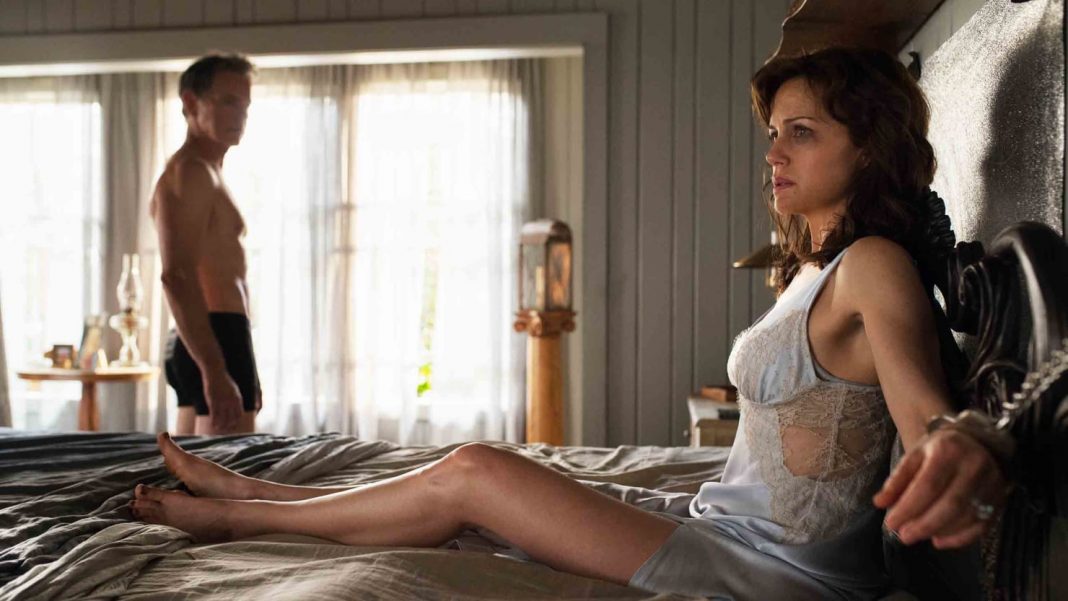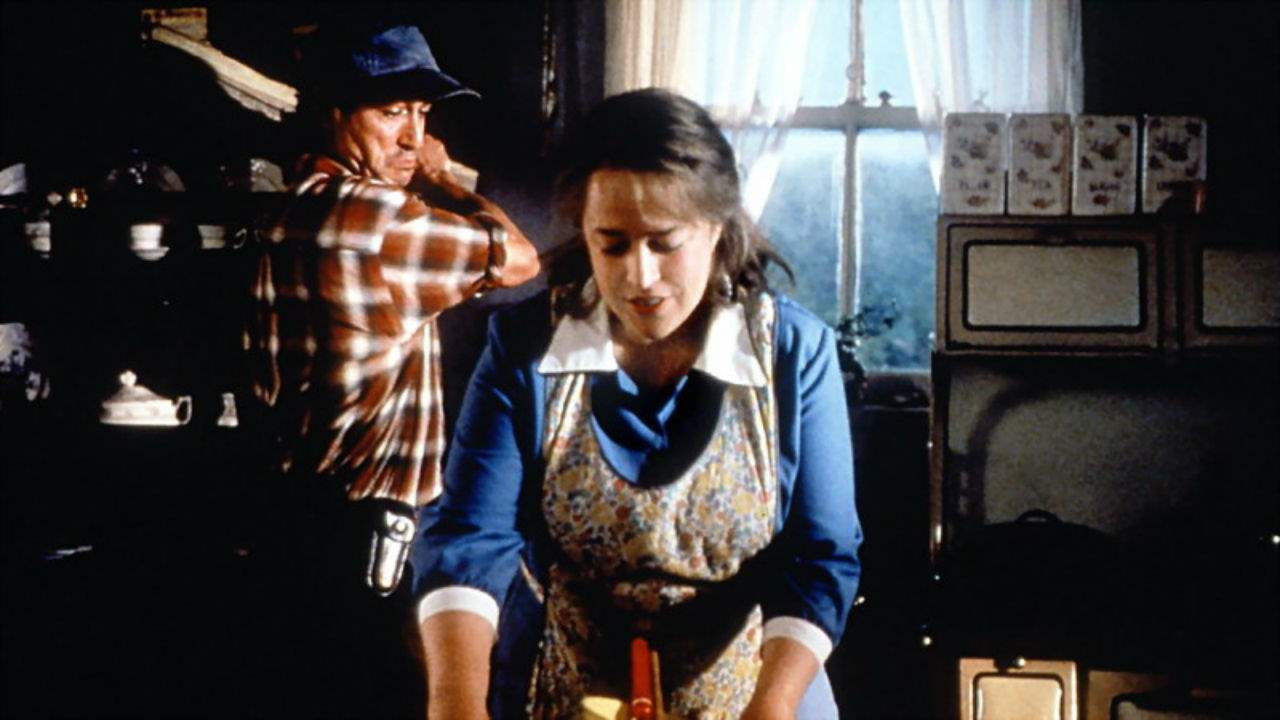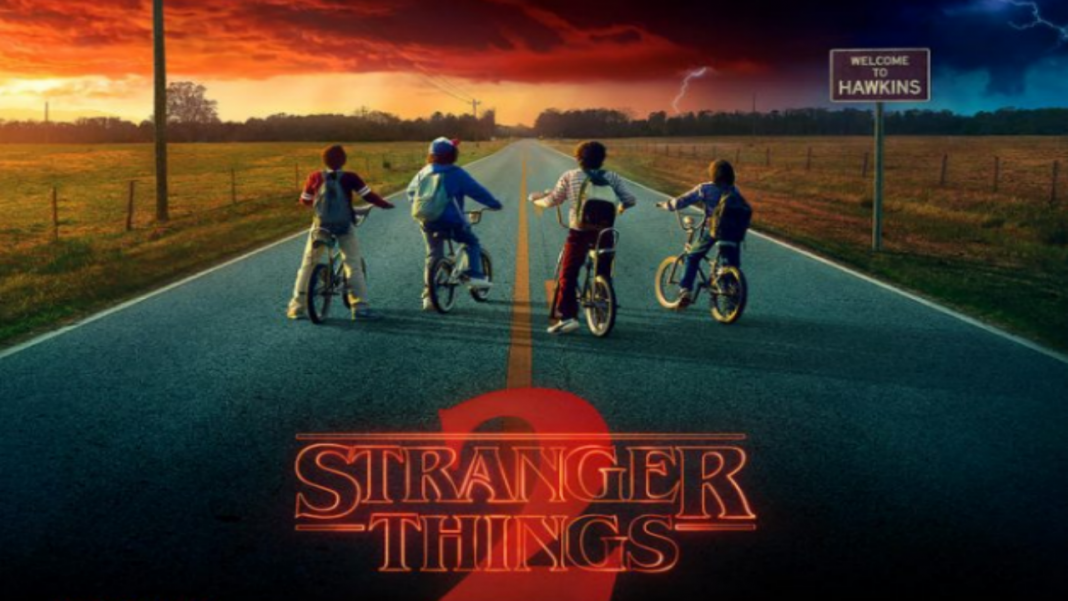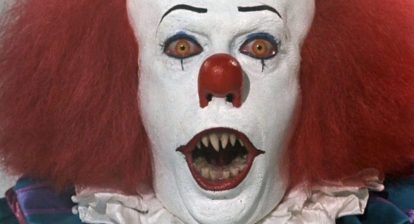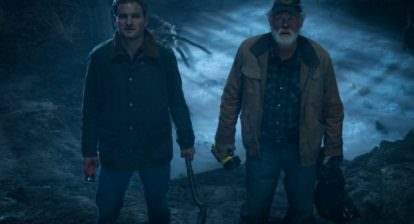Noteworthy Heroines of Horror is a recurring segment on Wicked Horror where we shine the spotlight on a female character from the annals of horror history who has made a significant contribution to the genre. The characters we select may not be the obvious final girls that regularly grace top ten lists, but their contributions to the genre are meaningful and worthy of note.
The main goal I had when I started this feature was simply to praise those female characters from horror films that don’t get talked about enough as true heroines. What I found out through analyzing these women are all the different ways that someone can be heroic to me. It is about so much more than just having the physical bravery to stand up against a knife-wielding foe–the mental strength of these women is often what resonates with me the most. To this point, I think we should take a look at someone who just recently skyrocketed to the top of my horror heroine list–Jessie from Gerald’s Game, who is portrayed to perfection by Carla Gugino. As this is still a new film, I will warn you that SPOILERS lay ahead.
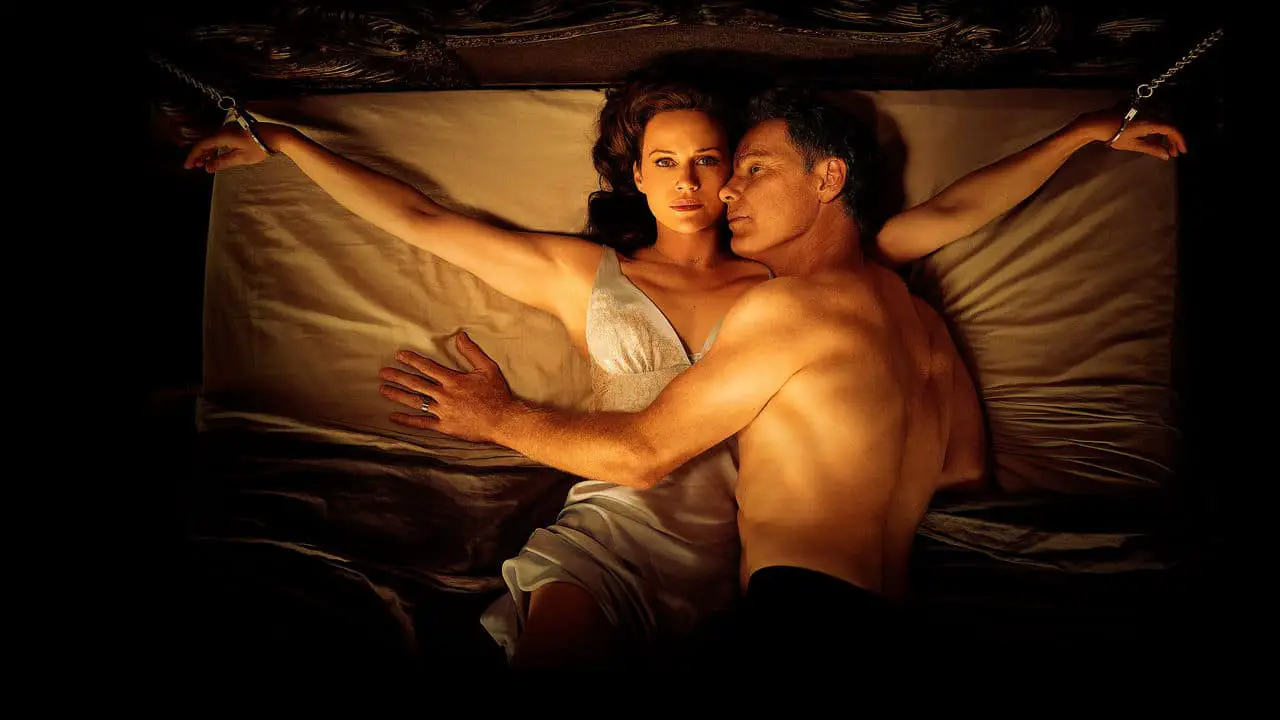
Stephen King’s 1992 novel Gerald’s Game has been talked about for years as being an “unfilmable” story in the author’s canon. The main character is handcuffed to a bed for almost the entirety of the novel and much of the action takes place inside her head. Nevertheless, co-writer and director Mike Flanagan brilliantly cracked the code on how to bring the tome to life on screen. And with it, he has given us an incredibly skillful character exploration about a woman not only fighting against her current situation, but also against herself, and coming out a far stronger person in the end.
What truly makes Jessie a heroine to me is that the real monster she has to face and overcome is herself, and the effects of her painful past. At the start of the movie, Jessie appears to just be the “dutiful wife,” as Gerald says–a sweet woman with a “good heart,” if not a very meek and non-confrontational woman. But almost as soon as Gerald (another brilliant character portrayal by Bruce Greenwood) puts her in those handcuffs, they both change. Gerald shows his aggressive and domineering side, which triggers Jessie (especially when he calls himself “Daddy”) to finally ask him to stop with something she has clearly been uncomfortable with from the start. Soon after, Gerald dies of a heart attack and Jessie is left alone in the handcuffs. She deals with the situation by retreating inside her head, and this is where her real battle in the movie takes place. Along with all this, Jessie is also terrorized by a strange figure that appears at night who she calls the “Moonlight Man,” a vision she assumes is one of Death, waiting to take her away.

Jessie’s thoughts are manifested through other visions of a now-alive Gerald and another version of herself, “Jessie 2,” talking to her. They help her in her current fight for survival, but they also force her to face the long-standing issues that have led her here. The crux of it all is an incident that occurred when she was twelve years old. While at the family lake house to watch a total solar eclipse, Jessie’s father sexually abused her. (King fans will note later on the reference to the shared universe that exists between Gerald’s Game and Dolores Claiborne having to do with this eclipse.) In a scene that is perhaps far more disturbing and infuriating than the actual molestation, her father, creepily played by Henry Thomas, emotionally manipulates Jessie into not telling anyone what happened. He coerces her into thinking the way that keep so many victims of sexual abuse and assault quiet–the embarrassment and shame of others knowing what happened to them, and that they are the ones to blame for the abuse. And so Jessie never tells a soul.
This is her past. In her present, Jessie has married a man who makes disgusting jokes about women, and who must physically dominate her in order to perform sexually. Maybe she has never seen Gerald’s true darkness, but she definitely sees the parallels between Gerald and her father, and the way they objectify her for their own gains. Jessie’s father’s nickname for her is “Mouse,” a perfect representation of all sides of Jessie’s character throughout the movie. Mice are such small, seemingly insignificant creatures, and are therefore more susceptible to predators. They go through life trying to remain unseen, lest they fall victim to a predator. Young Jessie is the timidity and innocence of a mouse. Older Jessie, the one who fights through her time in the handcuffs (both literal and metaphorical) and eventually breaks free of them, is the adaptability and resourcefulness of a mouse, the one that represents sheer determination for survival, despite the predator that lurks in the corner.

The eclipse is another metaphor that is important to the movie and Jessie’s character arc. In her visions of herself with Young Jessie, that version of her is forever stuck in the darkness of the eclipse. This is a darkness that sexual abuse/assault survivors know all too well. The guilt, shame, and anger of being a victim can take one to a very dark place emotionally, and so it is no wonder that Jessie buried it in her head. Jessie 2 tells her that she has basically been sleepwalking through life since the abuse, and Gerald says, “If there’s a monster under your bed, it won’t bother you if you’re asleep.” It is an emotional and painful journey to finally come face-to-face with what we have endured in the past, but it is a path that must be taken to fully realize our strength. And perhaps this is why I personally connected with Jessie so much, and why she is a true heroine to me. I recently had to face a similar issue from my past. This painful memory eclipsed my view of who I thought I was. It took away my confidence and sense of self-worth.
What Jessie needs at the end of Gerald’s Game (and what I needed in my own life) is a way to truly make the sun come out again for herself. Her father and her husband, those two monsters of her past, are gone, and she has abandoned silence for talking about her abuse whenever she can to help other people. But one monster, the Moonlight Man, still lurks in the corner of her nightmares. Jessie finds out that he is actually a real person, a necrophiliac grave-robber named Raymond Andrew Joubert. He is her last monster. And when she boldly approaches him in the courtroom, she sees that, though he is disfigured, he is just a man. And like her father and husband, he doesn’t run her life anymore. Her final words to him–“You’re so much smaller than I remember”–reduces him and the other men in her life to the insignificant mouse she once was. As she walks away, the eclipse finally ends to make room for the sun.

Chatter I’ve seen online has people saying that they think the film falls apart during these epilogue scenes with Jessie, but I completely disagree. They are the perfect amalgamation of what the entire story has been about: HER. The situational aspect of the film–a woman trapped in handcuffs–is what draws you in, but what you are really here to watch is the beautiful story of a woman finally coming into her own. It is a story of true inner strength and determination, and of a woman who finds the will to live. Not just the will to not die, but to really live the life she should have always had–not forced into blackness by those around her, but bathed in the sunlight.
I haven’t even yet mentioned the now infamous scene of how Jessie frees herself from the handcuffs. It’s a scene that anybody who has read the book before probably hasn’t forgotten, and it is the most cringe-inducing thing I have seen in a long time (not to mention one of the best practical makeup effects). Seriously, I dare anybody to watch Gerald’s Game and then try to tell me that women are the weaker sex. But again, Jessie has taught me that heroines are not just the ones who are willing to do what is physically difficult. It takes incredible emotional and mental strength to overcome what has happened in your past. Believe me, it is a hard thing to do, and anybody that is able to come out on the other side as strong as Jessie does deserves to be called a Noteworthy Heroine of Horror!
Be sure to check out our rave review of the film right here.
